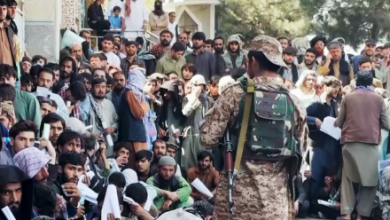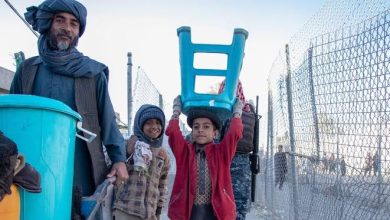Industry Week Opens in Kabul Without Women’s Participation
The fourth annual Industry Week Exhibition was inaugurated in Kabul on Tuesday, marking a significant milestone as the first edition held without any participation from women. This absence highlights ongoing gender restrictions under the current administration, drawing attention to the challenges faced by women in Afghanistan’s industrial sector.
Islamic Emirate Officials Pledge Commitment to Industrial Growth
Officials from the Islamic Emirate emphasized their dedication to fostering industrial development and attracting investment in Afghanistan. They pledged to utilize all available means to strengthen the country’s industrial infrastructure and economic resilience.
Mullah Abdul Ghani Baradar, Deputy Prime Minister for Economic Affairs, remarked, “Industry is the foundation of every country’s progress. Today, we see nations that have strengthened their infrastructure, eliminated unemployment, and found strong markets for their products at home and abroad—thanks solely to the industrial revolution.”
Focus on Quality and Self-Reliance in Afghan Industry
Abdul Salam Hanafi, Deputy Prime Minister for Administrative Affairs, stressed the importance of prioritizing quality in both domestic production and imports. “Those who produce or import in Afghanistan must prioritize quality. Low-quality goods should neither be produced domestically nor imported. Otherwise, it will lead to failure, not only for you but for the entire Afghan industrial sector,” he warned.
Nooruddin Azizi, Acting Minister of Industry and Commerce, highlighted the competitiveness of Afghan-made products and announced tariff reductions on raw materials and industrial machinery to stimulate growth. He asserted, “All the products we manufacture in Afghanistan are high quality. None are substandard. Those who claim Afghan products are poor quality are enemies of Afghanistan’s industry and self-reliance.”
Government Support and Challenges in Industrial Development
Hamdullah Nomani, Acting Minister of Urban Development and Housing, reaffirmed the government’s role in providing necessary support and resources to industrialists. “The Islamic Emirate, as a responsible government, is committed to providing the necessary tools and support to help industrialists begin their operations,” he said.
Despite progress, Din Mohammad Hanif, Acting Minister of Economy, acknowledged ongoing challenges: “Despite progress in the industrial sector, Afghanistan remains a consumer country. We still import essential items like turbans, prayer rugs, and rosaries from abroad.”
Industrial Sector Growth and Employment Statistics
The Afghanistan Chamber of Industries and Mines, a key organizer of Industry Week, reported a 12% growth in the industrial sector this year. The sector now employs over 420,000 people across various production fields.
Shirbaz Kaminzada, the chamber’s president, stated, “Our private sector and industrialists have reached self-sufficiency in 168 sectors. We now have 6,500 factories nationwide and 420,000 workers engaged in industry.”
Infrastructure and Energy: Critical Components for Industrial Progress
Abdul Bari Omar, CEO of Da Afghanistan Breshna Sherkat (DABS), emphasized the indispensable role of electricity in industrial development. “Electricity is a vital factor alongside industry. Without electricity, there can be no industry. In today’s era, electricity is a basic need essential to industrial progress,” he explained.
Exhibition Highlights and Duration
The Industry Week Exhibition features over 700 booths showcasing a diverse array of domestic products, including food and non-food items, carpets, beverages, electronics, and household appliances. The event aims to promote Afghan-made goods and encourage investment in local industries.
The exhibition will remain open to visitors until June 1, providing a platform for business networking and industrial promotion despite ongoing social and economic challenges





